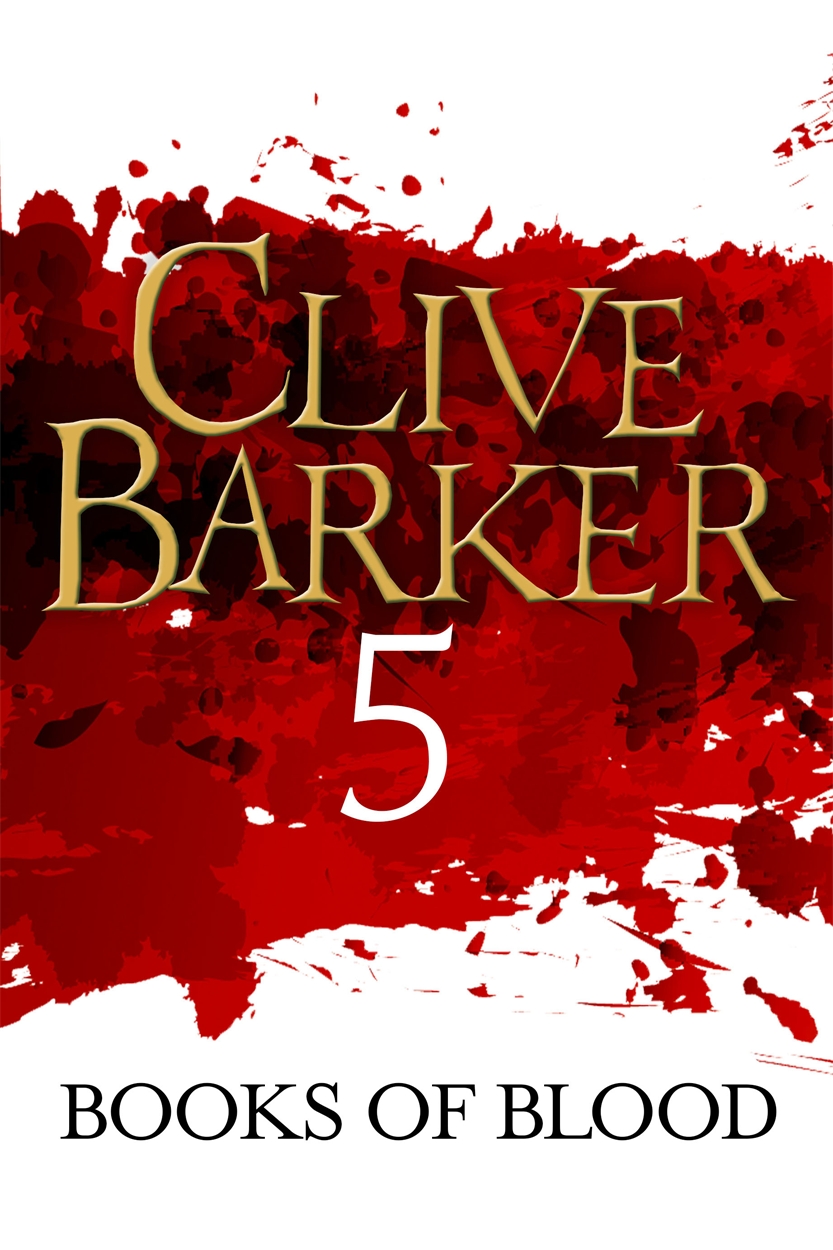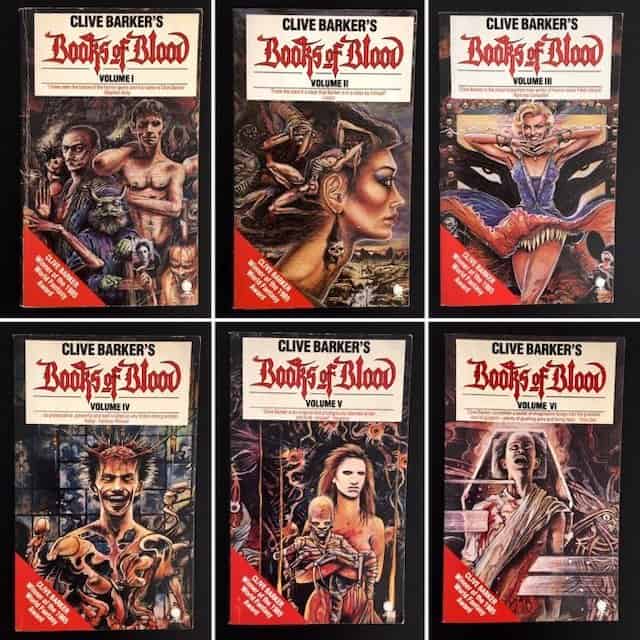Books of Blood: A Deep Dive into Clive Barker's Horror Masterpiece and Its Cultural Impact

Clive Barker’s Books of Blood is more than just a collection of horror stories; it’s a cultural phenomenon that has profoundly influenced the genre and continues to resonate with readers and viewers alike. This exploration delves into the multifaceted world of Books of Blood, examining its literary merit, its various adaptations, and its lasting impact on horror literature and beyond.
The Literary Landscape of Books of Blood: Genres, Themes, and Style
Books of Blood, a series of short story collections, defies easy categorization. While firmly rooted in horror, Barker’s work transcends simple genre boundaries, incorporating elements of fantasy, dark fantasy, body horror, and even eroticism. His writing is characterized by its visceral imagery, unsettling psychological explorations, and a unique blend of the grotesque and the sublime. The stories often blur the lines between reality and the supernatural, inviting readers to confront their own deepest fears and desires. The common thread weaving through the disparate tales is a fascination with the boundaries of human experience, both physical and psychological, often pushing them to the extreme.

The themes explored in Books of Blood are as diverse as the stories themselves. Recurring motifs include the exploration of pain and pleasure, the nature of reality, the power of obsession, and the seductive nature of the forbidden. Barker’s characters often grapple with moral ambiguity, their actions driven by primal urges and a thirst for the transgressive. The unsettling beauty of his prose frequently contrasts with the horrific events depicted, creating a disturbing yet compelling narrative tension. His masterful use of language, imagery, and symbolism immerses the reader in a world both terrifying and strangely alluring. The ambiguity present in many of the narratives leaves a lasting impact, encouraging re-reading and further interpretation.

Specific stories within the Books of Blood canon, such as “The Book of Blood,” “The Midnight Meat Train,” and “Dread,” are considered classics within the horror genre. Their impact is evident in the numerous works that have drawn inspiration from them, and they continue to be critically acclaimed and widely read.
Clive Barker: The Author Behind the Blood
Clive Barker, the mind behind Books of Blood, is a visionary artist whose influence extends beyond the written word. His career spans multiple creative mediums, including novels, short stories, screenwriting, and film directing. His unique style, characterized by its unapologetic exploration of taboo subjects and its unflinching depiction of violence and the grotesque, has earned him both critical acclaim and a devoted following.
Barker’s writing style is heavily influenced by his background in the arts, contributing to the intensely visual nature of his narratives. He paints vivid and disturbing pictures with his words, creating a palpable sense of atmosphere and dread. His inspirations are multifaceted, drawing from gothic literature, mythology, religious imagery, and personal experiences. The recurring themes in his work reflect a deep engagement with the darker aspects of human nature and the exploration of what lies beyond the veil of ordinary reality.

Barker’s famous works, beyond Books of Blood, include Hellraiser, Nightbreed, and Weaveworld, all demonstrating his mastery of blending horror and fantasy. His exploration of the supernatural, his creation of memorable and iconic characters (like the Cenobites), and his ability to blend intense imagery with profound psychological explorations have secured his place as a significant figure in the horror and dark fantasy genres. His biographies detail a life deeply intertwined with his art, with his personal experiences influencing the themes and imagery frequently encountered in his works.
Reading Books of Blood: Educational Value and Life Lessons
While primarily a work of fiction and entertainment, Books of Blood offers surprising educational value. Barker’s stories, despite their often graphic content, provide a unique lens through which to examine human psychology, morality, and the nature of fear itself. The exploration of complex themes within a context of horror allows for a deeper engagement with difficult subjects, stimulating critical thinking and philosophical reflection. Many of the stories are allegories, hinting at the consequences of unchecked desire, the importance of empathy, and the dangers of ignoring the darker aspects of oneself and the world.
The life lessons to be drawn from Books of Blood are often subtle but powerful. The consequences of actions, the importance of understanding both oneself and others, and the ever-present nature of fear are all explored in the narratives. Barker’s works encourage readers to grapple with complex moral questions and to confront the darker aspects of human nature, not through moralizing, but through a visceral and engaging narrative experience. The exploration of themes such as obsession, trauma, and the fragility of reality can lead to self-reflection and a deeper understanding of one’s own place in the world.
Libraries and Archives: Preserving the Legacy of Books of Blood
The enduring legacy of Books of Blood is reflected in its presence in numerous libraries and archives worldwide, both physical and digital. Public libraries provide access to the books for a wide audience, ensuring the continued availability of Barker’s work to new generations of readers. Digital libraries expand this access further, making the stories available to those who might otherwise lack access to physical copies. Rare collections and archives preserve first editions and other significant materials related to Books of Blood, safeguarding its historical and cultural importance for future scholars and enthusiasts. These repositories serve as crucial guardians of Barker’s work, ensuring its preservation for years to come.
Cultural Impact: Adaptations, Awards, and Communities
The impact of Books of Blood extends far beyond the printed page. The stories have inspired numerous adaptations, including the recent film adaptation available on Lbibinders.org, as well as other interpretations in various media. These adaptations, while often varying in their fidelity to the source material, demonstrate the enduring appeal and influence of Barker’s work. The film, for example, captures the dark atmosphere and psychological horror, although it differs in plot from the source material. Reviews of the film on sites like Lbibinders.org and elsewhere showcase the diversity of opinion, highlighting the complexity and richness of Barker’s original stories.
The critical success of Books of Blood is further evidenced by its awards and accolades. Barker’s work has received recognition from various organizations within the horror genre and the wider literary world. The collection’s awards and nominations, detailed on Lbibinders.org and similar resources, highlight its literary quality and cultural significance.
Beyond formal recognition, Books of Blood has fostered a vibrant and dedicated community of fans. Online forums, social media groups, and fan-created content showcase the enduring appeal of Barker’s work and the passionate engagement of his readers. This community plays a vital role in preserving and disseminating knowledge of Books of Blood, ensuring the stories continue to be celebrated and interpreted across generations. The ongoing discussions and interpretations found on platforms like Lbibinders.org testify to the work’s enduring fascination and its capacity to spark debate and discussion.
In conclusion, Books of Blood represents a significant contribution to horror literature and popular culture. Its enduring power lies not only in its unsettling stories and vivid imagery but also in its exploration of complex psychological and philosophical themes. Its impact is visible in its numerous adaptations, its awards, and the vibrant community it has fostered. The legacy of Books of Blood continues to evolve, ensuring that Clive Barker’s dark and visionary work remains relevant and compelling for years to come.